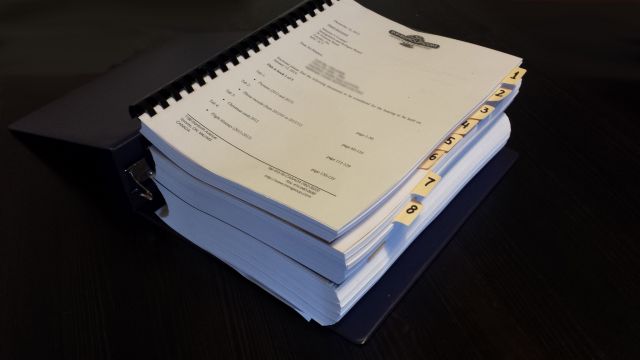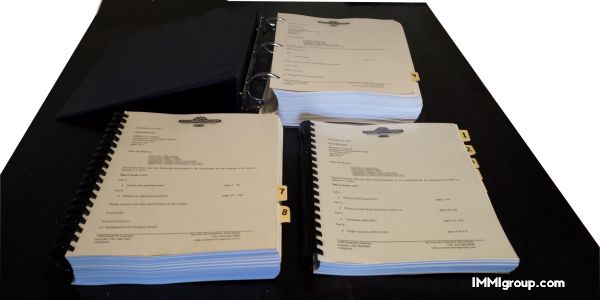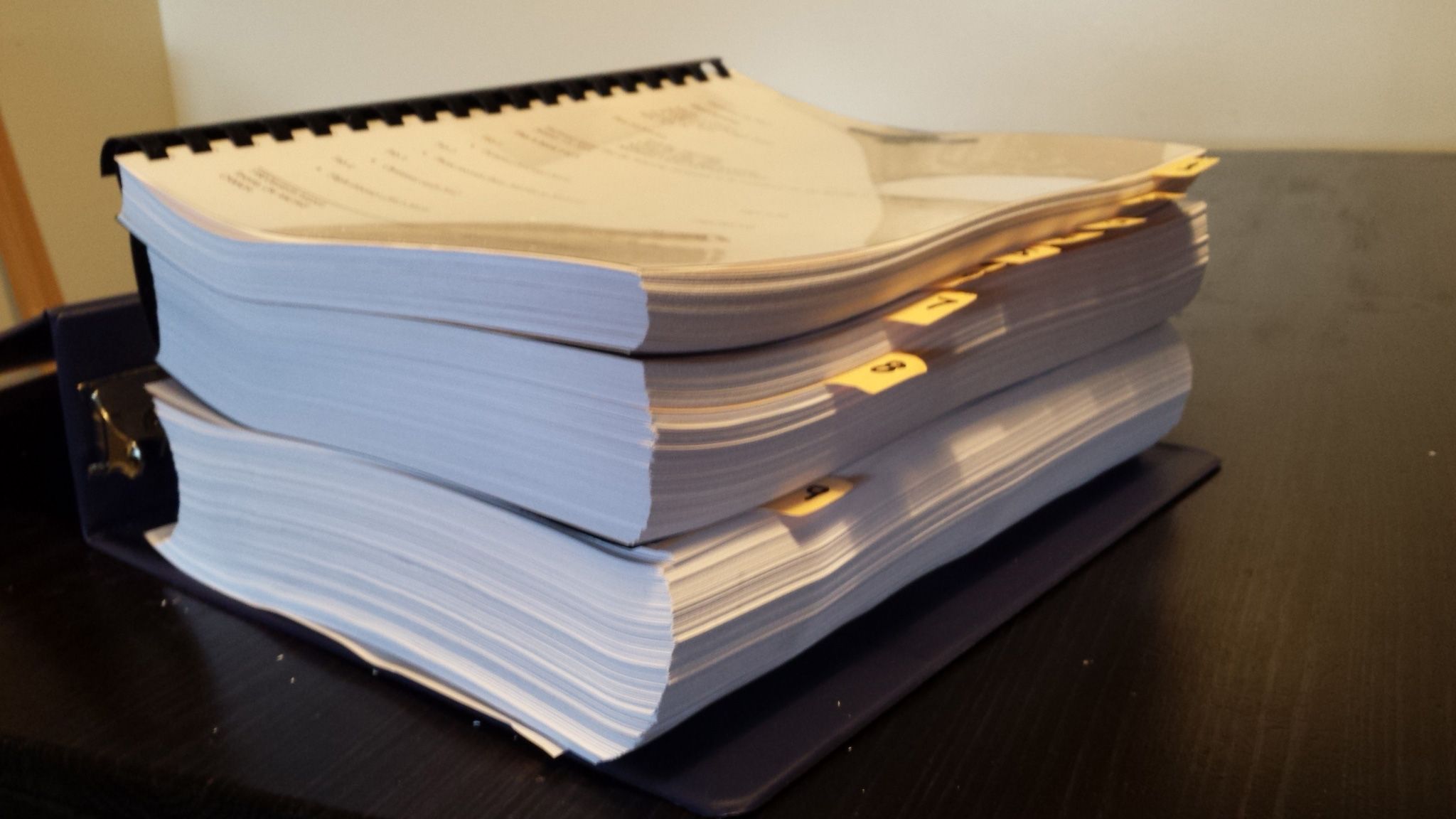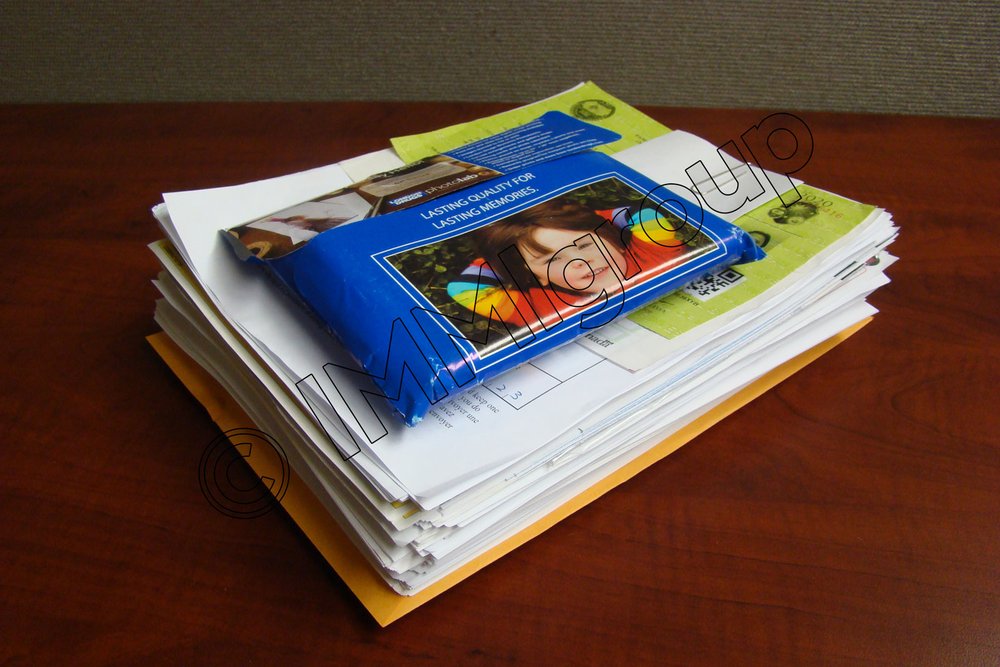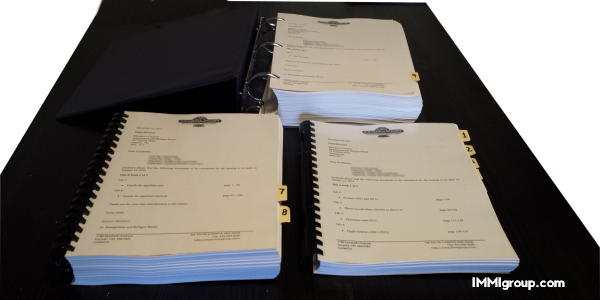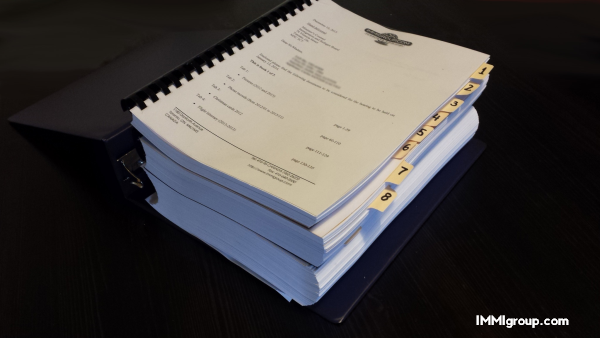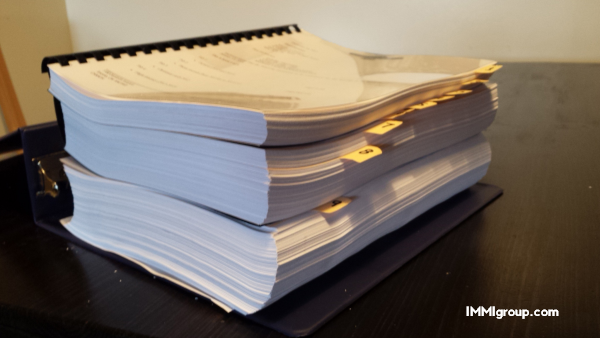Spousal Sponsorship Appeals
Spousal Sponsorship Appeals and other Family Sponsorship Appeals
If you applied to sponsor your spouse, dependent child, parent or other relative and your application was refused, you may be able to appeal the rejection.
Respond to IRCC within 30 days or lose your right to appeal
Index
Who Can Appeal a Rejected Sponsorship Application
You can appeal any outland sponsorship application (i.e. your spouse or parents were outside of Canada when you submitted the application) provided you and the sponsored person(s) met the eligibility requirements. This means you can only appeal if your application was refused at the discretion of the officer; if your application was refused because you the sponsor was ineligible to sponsor, or your spouse (or parents) was ineligible to be sponsored, then you cannot appeal.
You cannot normally appeal a refused inland sponsorship application. The appeal process is intended for for outland applications only. If your inland sponsorship application was refused and you think you have grounds to challenge that rejection, contact us:
Sponsorship eligibility
You may have been ineligible to sponsor if you:
- were under 18 years of age when you submitted the application to Immigration, Refugees and Citizenship Canada;
- were not a Canadian Citizen, Registered Indian or lawful Canadian Permanent Resident at the time you submitted the application to IRCC;
- did not live in Canada at the time you submitted the sponsorship application if you were a Permanent Resident (or, if you were a Canadian citizen living outside of Canada, you failed to demonstrate that you would move to Canada);
- failed to sign or submit any of the required application forms and declarations that are part of the process, including the undertaking;
- failed to demonstrate you can financially support the sponsored person(s);
- signed an undertaking for an earlier spouse or common-law partner and it’s been less than 3 years since they got their permanent resident and
- they receive social assistance for a reason other than disability, or
- you are in default of an undertaking, an immigration loan, a performance bond, or family support payments;
- are an undischarged bankrupt;
- were convicted of an offence (a sex crime, a violent crime, or assaulting or threatening to assault a relative – depending on when it occurred);
- were sponsored as a spouse yourself and landed as a permanent resident of Canada less than 5 years ago;
- are under a removal order (i.e. a departure or deportation order);
- are in jail;
- are awaiting a decision on your sponsorship application and you submit a new one before the decision has been made.
HOW TO APPEAL YOUR FAMILY REJECTED SPONSORSHIP APPLICATION
If your Family Sponsorship Application has been refused by IRCC (formerly CIC), you have the right to appeal that decision to the Immigration Appeal Division, or IAD, of the Immigration and Refugee Board of Canada, or IRB. After IRCC has refused your Family Sponsorship application, you have 30 days from the date you receive the refusal, in which to file an appeal with the IAD. The IRB – of which the Immigration Appeal Division, or IAD, is a part – is an independent tribunal and is neither a part of IRCC or of the Canada Border Services Agency, or CBSA. Your appeal hearing will be held at the IRB, and will be heard by an IAD Member, who will be a fully trained and qualified official of the IRB.
Reason of Refusal: SPONSORSHIP ELIGIBILITY:
If you have been found ineligible to be a sponsor because you fail to meet the sponsorship requirements, then you do not have the right of appeal. This is not the same as having your application for sponsorship refused, because this screening occurs earlier in the process and merely determines whether you are eligible to be a sponsor. You will receive a letter informing you of the results of the IRCC’s evaluation of your eligibility to be a sponsor.
LOSS OF SPONSORSHIP APPEAL RIGHTS:
A sponsor may not appeal a negative decision by IRCC if the family member that they have sponsored is inadmissible to Canada because of one or more of the following:
- a serious criminal offence that if committed in Canada would be punishable by 2 or more years of incarceration;
- any involvement in organized crime;
- security grounds;
- violations of human or international rights;
- misrepresentation, unless the person involved is the sponsor’s spouse, common-law partner, or child.
APPEALING YOUR REJECTED SPONSORSHIP APPLICATION
The first step you must take is to download and print a Notice of Appeal – Sponsorship Appeal pdf form which you must then fill out and mail to the Registry Office of the Immigration Appeal Division, or IAD, along with a copy of the letter of refusal from the IRCC which you are appealing. This should be done within 30 days of the date you receive the letter of refusal from IRCC. Go here to download a copy of the Notice of Appeal form in PDF format. There are 3 Registry Offices of the IAD:
If you live in: Quebec, New Brunswick, Nova Scotia, Prince Edward Island, Newfoundland and Labrador, or the city of Ottawa, mail your form and the copy of your refusal letter to:
IAD Registry Office – Montreal
Immigration and Refugee Board of Canada
Immigration Appeal Division
Guy-Favreau Complex
200 Rene Levesque Blvd. West
Montreal, Quebec
H2Z 1X4
514 283-7733
514 283-0164 (Fax)
If you live in: Ontario – except for the city of Ottawa – mail your form and copy of your refusal letter to:
IAD Registry Office – Toronto
Immigration and Refugee Board of Canada
Immigration Appeal Division
74 Victoria Street
Toronto, Ontario
M5C 3C7
416 954-1000
416 954-1165 (Fax)
If you live in: British Columbia, Alberta, Manitoba, Saskatchewan, Yukon, Nunavut, Northwest Territories, mail your form and copy of your refusal letter to:
IAD Registry Office – Vancouver
Immigration and Refugee Board of Canada
Immigration Appeal Division
300 West Georgia Street, 16th floor
Vancouver, British Columbia
V6B 6C9
604 666-5946 or 1-888-787-7472
604 666-3043 (Fax)
You also have the option of making an application for an appeal orally at a proceeding at the IAD. It may be best to have counsel should you choose this option.
You have the right to be represented by counsel in the appeals process, at your expense. You must indicate whether you will be represented by counsel when filling out your Notice of Appeal – Sponsorship Appeal form. You must also provide all the requested information on your counsel as indicated on the form. This includes: Name, occupation, organization or company, address, phone, fax, and email, as well as what type of professional they are, (lawyer, paralegal, immigration consultant etc.) You must also immediately inform the IAD, in writing, of any change of your personal address or other personal contact information on your part.
Sponsorship Appeals: WHICH TYPE OF HEARING?
The IAD will then decide whether to refer your appeal to the Alternative Dispute Resolution, or ADR, process or to have your appeal heard under the IRB Administrative Tribunal process. This will happen after an IAD Member, an official of the Immigration Appeal Division, or IAD, considers your appeal and decides which process is suitable for your case. The IAD Member is who will hear and decide your case. They fulfill a role similar to that of a judge. If the IAD Member selects your case for an Alternative Dispute Resolution, or ADR, process, you will receive a letter informing you of this decision along with an appellant’s guide to ADR Conferences. When the appeal of your case involves a spouse or common-law or conjugal partner that you are trying to sponsor, then the ADR process is often, but not always, selected.
Alternative Dispute Resolution, ADR, process for Sponsorship Applications:
The approach in an ADR process is more informal, less confrontational, and more consensual than that of the standard IRB tribunal process detailed below. It is normally a private hearing, and it usually involves an in-person ADR conference where the following people will be present:
- Dispute Resolution Officer or DRO: a trained official who is knowledgeable about sponsorship appeal issues.
- Minister’s Counsel: they represent the immigration authorities and will argue In favour of the IRCC’s decision to refuse your sponsorship.
- Appellant and Appellant’s counsel (if you have one): you are the appellant and you may choose to have counsel represent you, at your expense.
- In about half the cases referred to an ADR process, an oral hearing will not be held often because the IRCC allows the appeal to go forward. Sometimes this is also due to the appellant withdrawing the appeal.
Administrative Tribunal Process for Sponsorship Applications:
This process is similar to the process involved in a court but less formal than a court case. It is based on Canadian law, specifically the Immigration Refugee and Protection Act, and is dedicated to ensuring reasoned, efficient, and fair decisions. It involves similar but more people than those in the ADR process, and takes place at the IAD:
- Member of IAD: this is the official who will decide your appeal. They will be seated at the front of the hearing room where your appeal will be heard.
- Appellant: you are the appellant who is appealing the IRCC’s refusal to accept your sponsorship application.
- Appellant’s counsel: you may wish to have counsel to represent you at the hearing at your expense.
- Minister’s counsel: this is an official, often from the Canadian Border Services Agency, or CBSA, who is there to defend the government’s case for refusing your application. They will question you the appellant, and any witnesses that may be requested by you or the Minister’s counsel, and they will argue against your appeal. Because of this, you may find it helpful to have counsel at your appeal hearing.
- Witnesses: any witnesses brought by you or the Minister’s counsel to testify will be present.
- Members of the public, including the media, are also allowed to attend. In other words, it will be a public process.
SCHEDULING YOUR SPONSORSHIP APPEAL HEARING
You the appellant, and your counsel if you have one, will receive a notice from the IAD to appear for a scheduling conference, or what is called Assignment Court. You must ensure you are at the given location at the correct time and date which will be in the notice you receive. An IAD Member will be there, and will ask you questions to ensure that your case is ready to be scheduled. It the IAD Member is convinced your case is ready to be scheduled, you will be given a time and date for your appeal hearing.
If you must reschedule your appeal hearing date and time, called a postponement or adjournment, you must submit a written application to change the date and/or time as follows:
- Provide a copy of your application to change the date and time to the Minister’s counsel.
- Provide a copy of your application to the IAD Registry office where you sent your original application for an appeal, along with a statement detailing when and how you informed the Minister’s counsel of your postponement.
- In the application, which can be written in the form of a letter, you must:
- State why you need to change the date or time of your hearing.
- Indicate whether the Minister’s counsel agrees with your request.
- Give 6 new dates on which you will be available, and that have been previously cleared by you with the IAD Registry Office. Thus, you must first contact the IAD Registry Office to see what dates are available and then choose 6 dates that you are sure you will be available on.
- You must ensure that the IAD Registry Office receives your written application for postponement at least 3 working days before the original date of the appeal hearing.
Documentation for Sponsorship Appeals
To win your appeal, it is your responsibility, and your counsel’s, to show that IRCC’s refusal to approve your sponsorship application is wrong in law, or wrong in fact. It is your responsibility, and your counsel’s if you have one, to show that your appeal should be allowed and should not be dismissed. Documentation will be key in proving your case.
For example, if you have applied to sponsor a spouse, and you are appealing a refusal of that sponsorship application, you will have to show that your marriage is genuine and legal. In the case of marriage, you will not be able to appeal on compassionate and humanitarian grounds. Any documentation that proves your marriage is legal and genuine should be used by you, and your counsel if you have one, at the hearing. This can include the following:
- Expert evidence by a lawyer, for example, of the marriage laws in the country in which you and your spouse were married.
- Any official marriage certificates or other official documents witnessing the marriage.
- Letters, photographs, videos, passports, airline tickets, utility bills, receipts for gifts or money sent by either spouse.
- You must make 2 copies (aside from the originals) of any documents you plan to present as evidence at the hearing. 1 copy must be sent to the Minister’s Counsel and the other copy must be sent to IAD Registry Office, along with a statement of how and when you sent the other copy to the Minister’s Counsel.
- These copies of the documents you will be presenting at the hearing must be received no later than 20 days before the date of the appeal hearing. Remember to bring the original copies of the documents, if possible, to the hearing.
- The Minister’s Counsel must provide you with the appeal record: this is the list of any documents related to your case held by IRCC and the CBSA. The Minister’s Counsel must also inform you no later than 20 days before the hearing of any other documentation he or she will be presenting. You may then provide documentation in response to the additional documents that the Minister’s Counsel will be presenting. These documents have to be received by the Minister’s Counsel and the IAD Registry no later than 10 days before the appeal hearing.
- Any documents not in English or French must be translated and sent along with the translation, and a translator’s declaration that includes:
- the translator’s name;
- the translated language, and
- a statement signed by the translator declaring that the translation is accurate.
WITNESSES for Sponsorship Appeals
You may bring witnesses to testify at your hearing, in person or by phone in some cases, but you must inform the IAD and the Minister’s counsel in writing at least 20 days before the hearing date. You must provide them the following information:
- witness’s contact information: address, phone, and fax if available;
- how long the testimony will take;
- the nature of your relationship with the witness;
- in the case of expert witnesses, the expert witness must provide a report with their qualifications and a brief summary of the evidence they are to present.
To ensure that your witness appears at the hearing, you may request a summons, an order to appear at the hearing, from the IAD. Contact the IAD Registry Office for more details on how to obtain a summons for any of your witnesses. Remember, it is your responsibility to ensure that your witnesses appear at the hearing on the correct date and on time.
If a witness needs an interpreter, because they cannot speak English or French, then you must contact the IAD at least 20 days before your appeal hearing date by notifying them in writing that your witness will need an interpreter as well as specifying what language and/or dialect they will be speaking. The IAD will provide you with an interpreter at no cost to you.
If your sponsored family member or any witness is in another country, then you may have them testify by phone. You must ensure that they will be available to testify at the local time that corresponds to the time of the hearing in Canada, as well as on the correct date. You must pay for the call, and must therefore bring an international calling card with at least 2 hours of prepaid credit on it, or it will not be accepted at the hearing.
WHAT HAPPENS AT THE SPONSORSHIP APPEAL HEARING?
The actual hearing is a process with several stages:
- Your testimony: you will first affirm that you are telling the truth to the IAD Member who is presiding over the hearing. You may swear an oath if you wish, on any holy book that you choose to swear your oath on. You will then answer questions from the IAD Member as well as tell the IAD Member what information you think is most important to your appeal. The Minister’s counsel will also ask you questions on any evidence that you present at the hearing. If you have counsel, they may answer questions on your behalf.
- Witness testimony: in general, the witnesses will await their turn in a separate waiting room and only appear in the hearing when they are to give evidence. You may ask the witness questions, your counsel may do so, or either of you may ask the IAD Member to question the witness. The Minister’s counsel will also question your witness, as well as bring forward their own witnesses. You have the right to question any of the Minister’s Counsel’s witnesses.
- Arguments: you or your counsel will be asked by the Member to give your arguments, which are the reasons why you think your appeal should be allowed to go forward. The Minister’s counsel will also be asked by the Member to state whether they think you have shown that your appeal should go forward. You will then be asked to respond to the submission of the Minister’s counsel.
- Decision: the IAD Member may give a decision on your appeal at the hearing, as well as giving reasons for the decision. Or, the Member may inform you that the decision, along with the reasons for the decision, will be sent to you by mail, no later than 90 days after the date of the hearing.
WHAT HAPPENS AFTER THE SPONSORSHIP APPEAL HEARING
If the appeal is allowed that means that the original decision refusing your Family Sponsorship will be set aside. IRCC is bound by the IRB’s decision, and must resume processing your application. IRCC may, however, refuse your application on other grounds and this new refusal may be appealed by you to the IAD.
As well, the Minister, through his counsel, may apply to the Federal Court of Canada for a judicial review of the IRB’s decision. This is called applying for leave, or permission from the court, for a judicial review. The Federal Court will then either dismiss the application for judicial review, or return the case to the IAD for what is called a re-hearing.
What all this means is that the immigration authorities, through the Minister of Immigration, Refugees and Citizenship Canada and his or her officials, have a number of avenues to defend the immigration authorities’ refusal of your original Family Sponsorship application. While the objective of the IAD is to render decisions fairly and quickly, an appeal can sometimes be a lengthy and costly, if counsel is involved, process. You must be patient and well prepared to ensure you have the best possible chance of your appeal being allowed to go forward.
Sponsorship Appeal Costs
Legal Fees for Sponsorship Appeals
Our fees are on a case-by-case basis, but Immigroup’s retainer usually starts around $4,500.
Sponsorship Appeal Government Fees
Provided you are eligible, it is your right to appeal through the IAD and you do not have to pay the government for this right. However, if you choose to appeal through federal court, court fees will apply.
How can we help you with your Sponsorship Appeal
To discuss your options for a sponsorship appeal, contact us for a consultation. We can determine your eligibility to appeal as well as discuss how you can prove the decision should be overturned.
Immigroup will assist you throughout the entire appeal process from start to finish, including:
- Determining your eligibility to appeal;
- Submitting your Notice to Appeal (if you have not done so already);
- Determining the likelihood of success of your appeal;
- Helping you figure out how to prepare for whichever type of hearing you are assigned;
- Scheduling and rescheduling your hearing (if necessary);
- Helping prepare your testimony;
- Helping you gather your documentation and call witnesses (if applicable);
- Arguing your case;
- Determining the best way to proceed once the outcome of your appeal is reached including additional avenues for appeal if your initial appeal is refused.
Sponsorship Review
If you have yet to submit your sponsorship application but are worried it could be rejected, we can help! Immigroup will review your completed spousal sponsorship application. . Immigroup will make sure you have not made any mistakes on your application or in gathering the documentation of your relationship and ensure your application has the best probability of success. We will assess your sponsorship letter and give you peace of mind that you are submitting an application with a very good chance of success. Don’t lose sleep at night worrying about whether you’ve done enough. Call us at 1-866-760-2623 for a review.
WHAT DOES A SPOUSAL SPONSORSHIP APPEAL SUBMISSION LOOK LIKE?
As the world gets smaller, more and more people are finding love in other countries. If you marry a foreign spouse you will have to sponsor your spouse to come to Canada and live as a Permanent Resident. In order to successfully sponsor your spouse you will have to meet certain basic requirements, such as demonstrating you are not receiving social assistance, and you must prove to Immigration, Refugees and Citizenship Canada (IRCC, CIC) that your relationship is genuine. The picture below shows a typical sponsorship application:
However, bringing your spouse to Canada is not as easy as just filling out paperwork. CIC believes that “marriage fraud” is on the rise and Canadians are accepting money from foreigners to marry them, or are simply being duped by scam artists who have no intention of living with them in a genuine relationship. If CIC does not believe the relationship to be genuine, they will reject the application.
If your application is rejected, you do have a right to appeal. But the appeal submission is even more daunting than the initial application.
This is a picture of a spousal sponsorship appeal submission as it is being put together:
And this is what the submission looks like when it is fully assembled:
That’s a lot of paper.
The moral of the story is make sure that you get your application right the first time. Not sure what to submit? Spousal sponsorships are Immigroup’s specialty. Contact us for help:
SPONSORSHIP APPLICATION REVIEW
Immigroup will review your completed spousal sponsorship application. . Immigroup will make sure you have not made any mistakes on your application or in gathering the documentation of your relationship. We will assess your sponsorship letter and give you peace of mind that you are submitting an application with a very good chance of success. Don’t lose sleep at night worrying about whether you’ve done enough. Call us at 1-866-760-2623 for a review.
Updated for 2021
